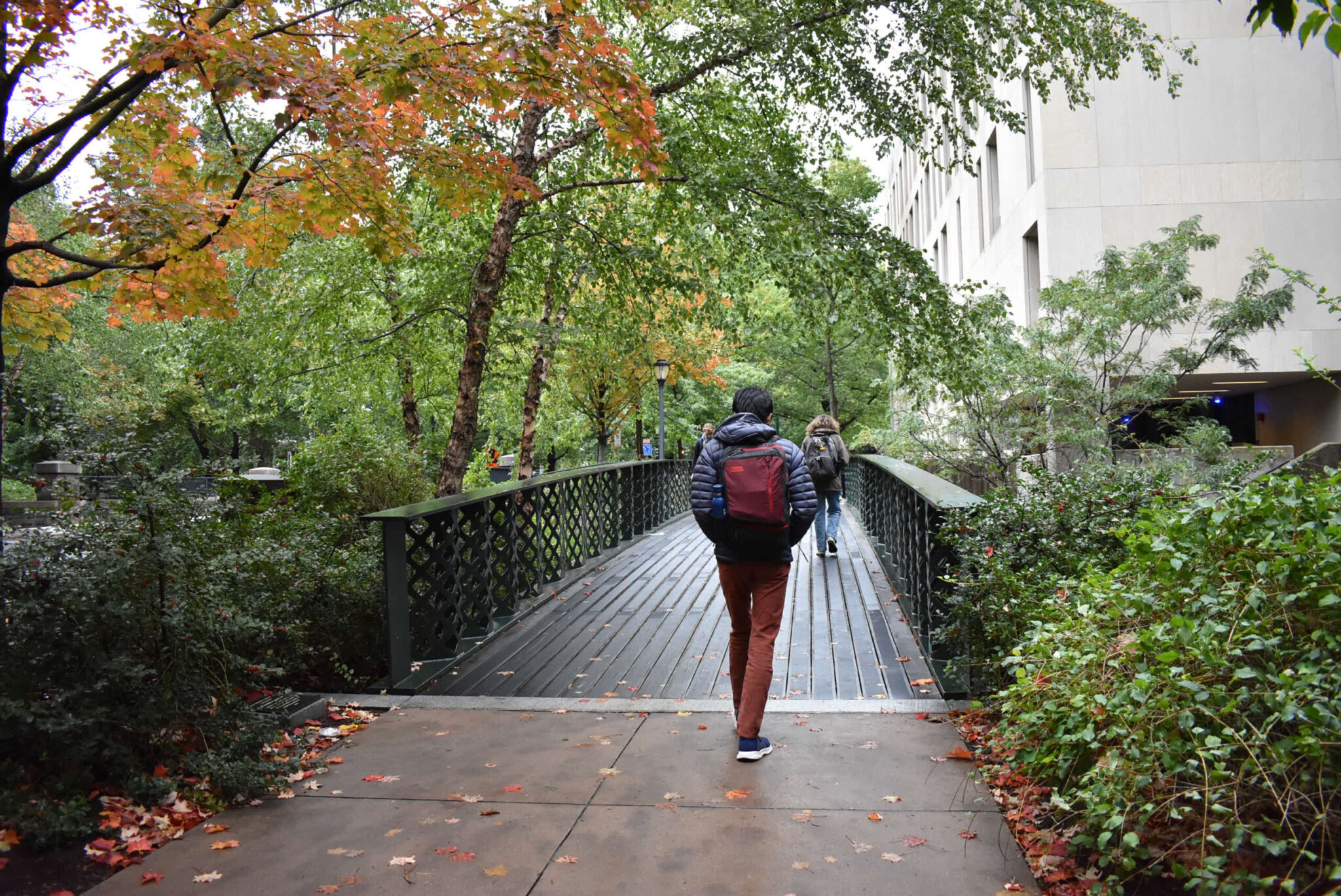Legacy students debate their admissions boost
As calls mount in universities and state legislatures across the country to end legacy preference in college admissions, the News spoke with legacy students at Yale about how legacy status affected their application processes and experiences at Yale — and about whether the practice should continue.

Ellie Park, Photography Editor
Growing up, Michael Garman ’25 talked extensively with his parents –– who were both undergraduates at Yale –– about the University’s use of legacy preference and the fact that he would benefit from it. He said that the concept struck both him and his parents as unfair, but it was “taken for granted long ago” that since he had the admissions advantage, he would apply.
Garman said that he opposes legacy preference because it gives a further boost to applicants who already have an edge. He explained that growing up with college-educated parents means that legacy students like him have the upper hand even without explicit legacy preference policies.
“I think it’s a terrible system, and that it gives a leg up to people who already have huge advantages,” he said. “Giving [those] people a further boost is just antithetical to Yale’s stated mission … of building as well-rounded a class as possible.”
A study of top United States schools last year showed that legacy applicants are often “slightly more qualified yet are four times as likely” to be admitted.
Students and state legislatures nationwide have called for the end of legacy preference, especially since the Supreme Court overturned affirmative action in college admissions last summer. A bill proposed in the Connecticut legislature would ban legacy preference at both public and private universities, and six other states have proposed similar bans. Yale spoke in opposition to the bill, while the Yale College Council testified in its favor, with the signatures of eight Yale affinity and advocacy groups.
Dean of Undergraduate Admissions and Financial Aid Jeremiah Quinlan said that ending legacy preference would not be helpful or necessary to achieve Yale’s goal of recruiting increasingly diverse classes because the admissions office has been making significant progress toward that goal while still employing legacy preference. Quinlan said that instead of eliminating legacy preference, the office is prioritizing recruitment and outreach programs to increase access for first-generation and low-income students.
In high school, KaLa Keaton ’25 debated whether or not to Dartmouth College, where her mother went to college. Keaton said she thought she would feel less proud of any acceptance in which her family’s affiliation was a factor. Ultimately, she decided to not even apply.
Now a junior at Yale, where she is not a legacy student, Keaton co-founded and serves as co-president of Yale’s Generational African American Student Association, one of the groups that undersigned the Yale College Council’s testimony.
“What legacy admissions effectively does is it creates an elite pool,” Keaton said. “It would benefit [GAASA members] as individual students and our future families, but it actually is counterproductive to that goal of growing the generational community and expanding those ties and those pathways into an elite institution.”
Similarly, Thomasin Schmults ’26 contemplated whether or not to include that her parents had attended Yale on her application. If she were to be accepted, she did not want to wonder or feel insecure about the reasons why. Ultimately, Schmults decided to include her legacy status in her application, worrying that she would regret not noting her legacy status if she were rejected.
“I think it would have been better if it wasn’t something that I had to think about at all, if everyone here could feel 100 percent sure that they got in because of who they really are, not because of some random factor that they have no control over,” Schmults said.
Schmults said that overall, she opposes legacy admissions because she sees the practice as an unfair advantage that makes the admissions process less meritocratic.
Jake Schramm ’25 said that he can see both pros and cons to Yale’s use of legacy preference, but that he is a “tentative yes” in support of the practice. Schramm, whose parents both attended Yale, said that colleges and their graduates benefit from promoting an “engaged” alumni community.
“It keeps the Yale community together and it keeps the older members of Yale more engaged, even if the motives are selfish,” he said. “If you do keep people who remember when Yale functioned differently in the conversation of what Yale should look like, you will have more options and creativity as you imagine ways to reform Yale.”
Schramm said that grades and standardized tests are bad at determining which students would make good future leaders of the country, and that legacy preference is an example of a component of the admissions process that can help ensure that admissions are not solely based on “total compromise of your high school experience.”
Unlike Schramm, Nate Olson ’24, whose father attended Yale Law School, said that he opposes legacy preference because Yale should focus on considerations of merit to differentiate between candidates.
He said that there is a stigma that legacy students are less qualified because they receive a boost in the admissions process, which he said he thinks is annoying but understandable.
“I would have rather known 100 percent that I got into Yale on my own merits and that the legacy role didn’t play a part in that,” Olson said.
Eleven percent of the class of 2027 are legacy students.







